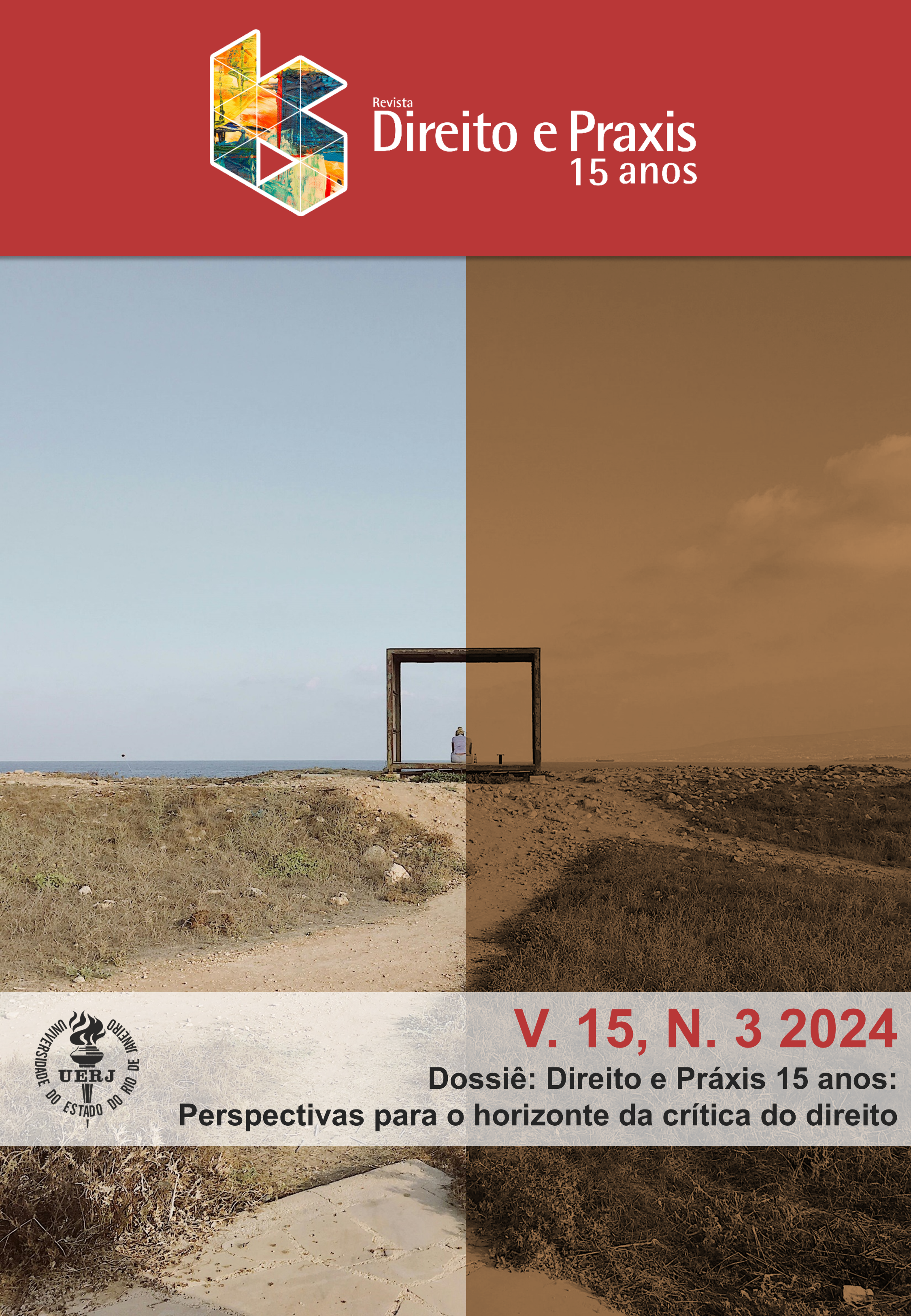Sobre terras prometidas
o remediar da desintrusão e o artifício da grilagem
Palavras-chave:
Terras indígenas, Proteção territorial, Dissuasão, Comodificação da terra, Teoria constitucional, Formalismo militanteResumo
https://doi.org/10.1590/2179-8966/2023/71792
A Constituição Brasileira de 1988 reconheceu aos povos indígenas o direito originário ao usufruto exclusivo de terras tradicionalmente ocupadas. O cumprimento de tal promessa depende da capacidade de órgãos estatais de remover invasores de territórios indígenas por meio da técnica jurídico-administrativa da desintrusão. Nos últimos anos, alianças entre políticos, fazendeiros e lideranças religiosas atualizaram antigos mecanismos de grilagem, operando a partir de redes de financiamento que instrumentalizam a ocupação de terras indígenas por grupos não-indígenas marginalizados. Amparado em fontes documentais e entrevistas semiestruturadas, o artigo examina a arquitetura institucional da desintrusão, seus contornos jurídicos e suas limitações factuais. Ele também descreve as formas pelas quais fluxos intercambiáveis de fé, dinheiro e votos se entrelaçam no nascimento de “comunidades locais” forjadas com o propósito de contestar direitos constitucionais territoriais indígenas. Para tanto, foca-se no surgimento das ocupações “Terra Prometida” e “Vila Renascer” dentro das terras indígenas Ituna-Itatá e Apyterewa. O texto argumenta que as estratégias de remediação empregadas no pós-1988 por povos indígenas e órgãos estatais para remover invasores de territórios protegidos e restringir processos de comodificação da terra podem ser interpretados como expressões de uma atitude militante-formalista diante da Constituição.
Palavras-chave: Terras indígenas; Proteção territorial; Dissuasão; Comodificação da terra; Teoria constitucional; Formalismo militante.
Downloads
Downloads
Publicado
Como Citar
Edição
Seção
Licença
Copyright (c) 2023 Revista Direito e Práxis

Este trabalho está licenciado sob uma licença Creative Commons Attribution 4.0 International License.
Os textos são de exclusiva responsabilidade de seus autores.
É permitida a reprodução total ou parcial dos artigos da Revista Direito e Práxis, desde que citada a fonte.
Este trabalho está licenciado sob uma Licença Creative Commons 4.0, Atribuição-Sem Derivações.
Esta licença permite copiar e redistribuir o material em qualquer suporte ou format para qualquer fim, mesmo que comercial, desde de que citada a autoria original.
This work is licensed under a Creative Commons Attribution 4.0 International License.




